FREQUENTLY ASKED QUESTIONS
Obstructive sleep apnea (OSA) is a sleep-related breathing disorder that involves a decrease or complete interruption in airflow despite an ongoing effort to breathe. It occurs when muscles relax during sleep, causing soft tissue in the airway to collapse and block the upper airway. This leads to partial reductions (hypopneas) and/or complete interruptions (apneas) in breathing that last at least 10 seconds each during sleep. Most pauses last between 10 and 30 seconds, but some may persist for one minute or longer.
This can lead to abrupt reductions in blood oxygen saturation, with oxygen levels falling as much as 40 percent or more in severe cases. The brain responds to the lack of oxygen by alerting the body, causing a brief arousal from sleep that restores normal breathing. This pattern can occur hundreds of times in one night. The result is a fragmented quality of sleep that often produces an excessive level of daytime sleepiness. Most people with OSA snore loudly and frequently, with periods of silence when airflow is reduced or blocked. They then make choking, snorting or gasping sounds when their airway reopens. A common measurement of sleep apnea is the apnea-hypopnea index (AHI). This is an average that represents the combined number of apneas and hypopneas that occur per hour of sleep.
Anyone with insomnia or frequent night time waking, morning headaches, frequent nighttime urination, depression with sleep disturbance, nighttime gasping, choking or coughing, persistent gastroesophageal reflux (acid reflux), and Snoring or irregular breathing during sleep.
Increased risk factors for obstructive sleep apnea include:
BMI > 30
Diagnosis of hypertension, especially when not responding well to treatment with medication
Large neck circumference (> 17” men; >16” women)
Male gender
Excessive use of alcohol or sedatives
Upper airway or facial abnormalities
Smoking
Family history of Obstructive Sleep Apnea
Endocrine and metabolic disorders (such as Type 2 Diabetes)
Cardiovascular disease (such as congestive heart failure or atrial fibrillation)
IN-HOME SLEEP TEST:
Increased accessibility with shorter wait time and significantly lower cost (we bill insurance $520.10 for this test or you can pay a cash price of $295).
Increased comfort and privacy as you get to sleep in the comfort of your own bed.
Multiple studies show high sensitivity and specificity of home sleep studies in populations with a high suspicion of having moderate to severe obstructive sleep apnea.
You should NOT get a home sleep test if you have any of the following health conditions: congestive heart failure, hypoventilation syndromes, neuromuscular disease, chronic lung disease, history of stroke, periodic limb movement disorder or if it is suspected you may have a sleep disorder other than obstructive sleep apnea.
IN-LAB SLEEP TEST:
Limited accessibility with longer wait times and much higher cost (typically $1500 - $3000 but can be as much as $5000).
This test is performed in a sleep laboratory. A sleep technician will attach the sleep testing device in addition to EKG leads and other monitoring devices and will watch and monitor you while you sleep, making adjustments to the testing devices as necessary.
This type of sleep test is necessary for anyone with a diagnosis of congestive heart failure, hypoventilation syndromes, neuromuscular disease, chronic lung disease, history of stroke, periodic limb movement disorder or if you are diagnosed with or suspected to have a sleep disorder other and obstructive sleep apnea (ie central sleep apnea or narcolepsy).
You should plan to perform your home sleep study on a “normal night.” Avoid booking the study on a day that you have a cold. It is also best to avoid doing the study on a night when you have been drinking alcohol. It is important that you have at least 4 hours of sleep on the night you perform the study, but ideally between 6-8 hours of sleep. Please consider that you will need to be available to pick up the device on the day you will be performing the study and then available to return the device back to the office the following day.
If we bill your insurance, the charge to your insurance company is $600 a night. If you prefer to pay without insurance, the cash price is $360 per night .
It can be difficult to determine exactly what the cost to you will be after we bill your insurance. For a more precise estimate, you may choose to call your insurance company for additional clarification of the cost to you. The CPT code for the home sleep study is 95806.
It is your decision whether we bill your insurance for this sleep study. Some patients prefer not to have us bill their insurance company if they have a high deductible or if they prefer to keep this aspect of their medical records private.
We strongly encourage you to treat your OSA as this will not only help you feel better day-to-day but is also helpful in preventing your risk of other health complications related to your untreated OSA. Treating your OSA will help increase your daily energy level, improve your sleep quality, prevent morning headaches, improve your mood, assist with weight loss/weight management and reduce your blood sugar levels. Treating your OSA will also help prevent your risk of hypertension, obesity, congestive heart failure, diabetes, coronary artery disease, stroke and a shortened lifespan.
